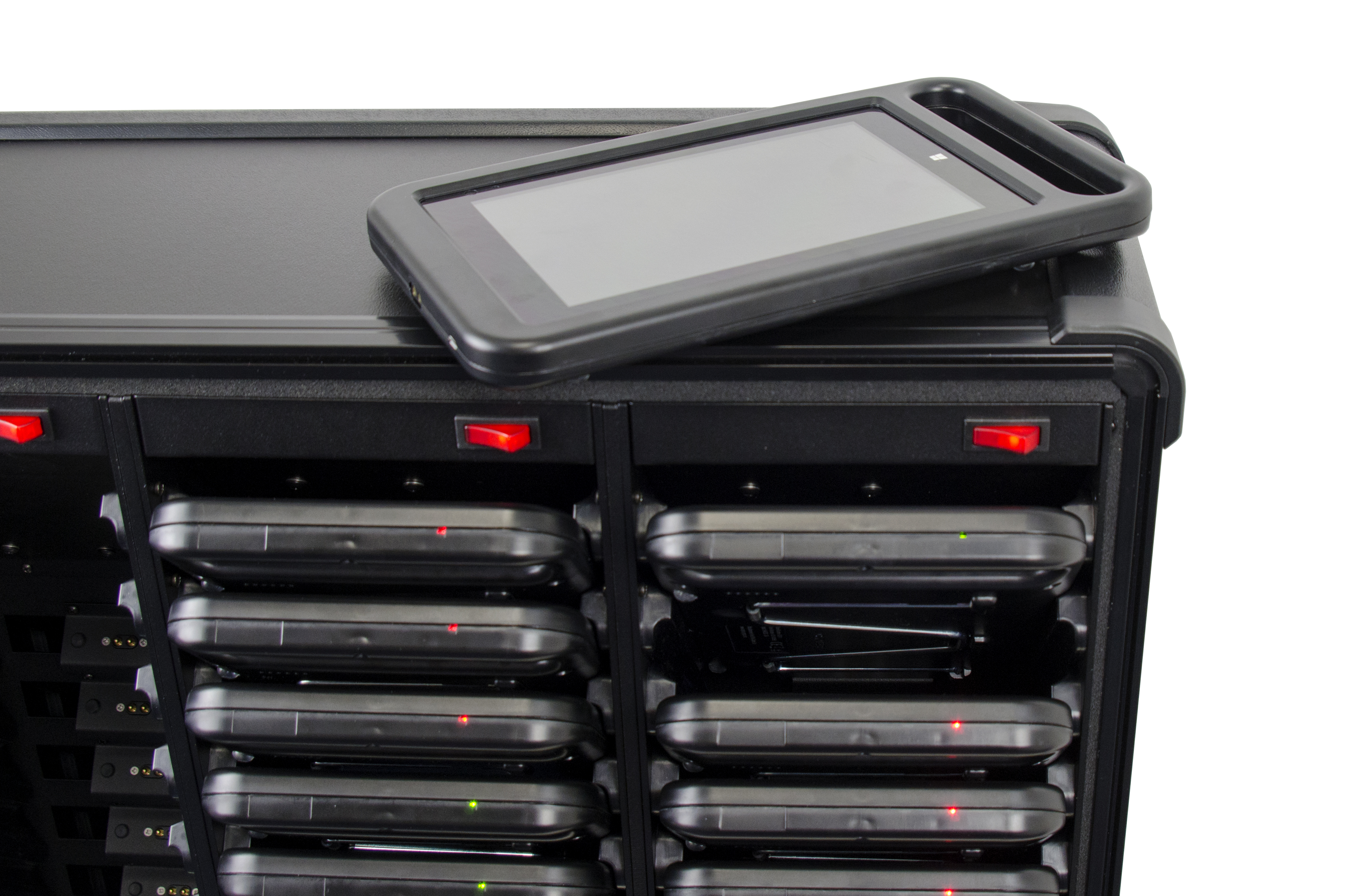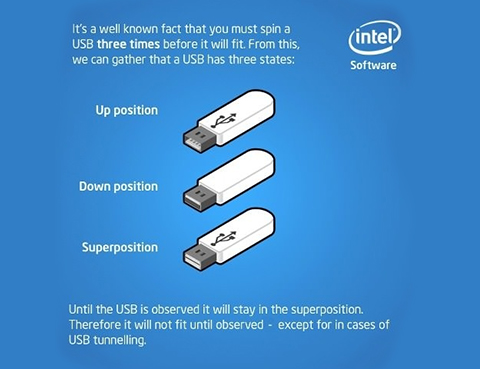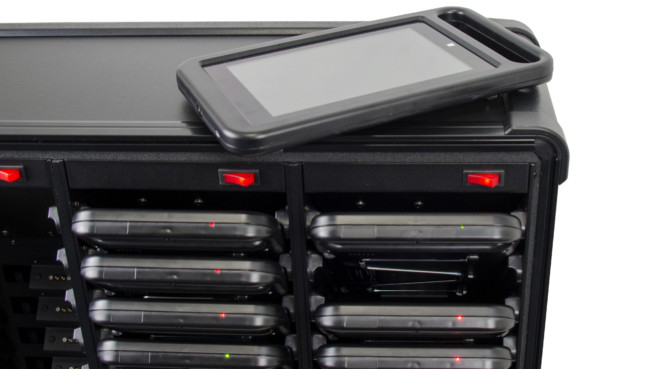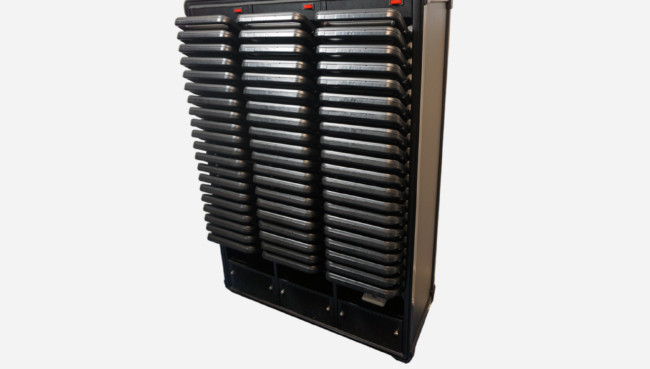
The Solution to Managing Large Tablet Estates
Sometimes it can be a pain to put your own personal devices on charge, remember to pack your power bank for extended use, or fiddle with a toothpick to get lint out of the charging port. Now, imagine all those little inconveniences magnified when you’re responsible for maintaining an estate of 200 tablets, themselves connected to a wider network of 20,000 nationwide.
Mobile device management (MDM) can only go so far – in that it predominantly covers updating and digital security – but that’s only half the picture. How you manage the hardware in an exposed, customer-facing environment is equally important. Through our work in the gaming and leisure sector, we’ve witnessed a number of ingenious solutions that estate owners have employed to mitigate this, and believe that our multi-tablet charging stations offer a better alternative.
A Life Untethered
All four of our charge stations feature cable-less charging; enabling quick, easy, and reliable charging without the fiddle factor of flimsy USB cables. Although less frequent with the increasing ubiquity of USB-C, I’m sure you’ve experienced the frustration of multiple failed attempts at connecting via USB; “But I just tried that way and it wouldn’t go in!” This is only exacerbated when you have 200 to continuously plug and unplug throughout the day, culminating in the breakage of standard consumer USB cables, which are simply not robust enough for commercial environments.

The charging contact solution featured in our stations completely eliminates the risk of broken cables, improving mean time between failure (MTBF) rates and reducing total cost of ownership. It also doesn’t suffer from the inefficiencies and potential unreliability of wireless charging (such as Qi or AirFuel). The user-friendly docking bays feature clear feedback when a connection has been made, making it unambiguous as to when the device is charging.
A secondary benefit is that all the tablets are powered via a single PSU requiring just one kettle lead, as opposed to however many individual USB plugs and cables. This simplifies integration into existing estates, with the only infrastructure requirement being a single wall socket. Although individual USB cables are essentially a consumable item at this scale, with an accordingly low price, there are hidden costs to this maintenance cycle. The staff hours required to either go out and buy replacement cables, or manage the logistics of sending cables to where they’re required, can be overlooked. Add this to the incremental loss of time for each plug-unplug cycle, the evil twin of economies of scale where inefficiencies are magnified. Humans are a lot more expensive than cables!
A final element of the cable-less design is it enables the option of self-service, where players can remove and return tablets intuitively themselves, further saving staff time. In one survey, 90% of 18-39 year olds considered self-service checkouts “easy to use” [1], and that’s checkouts, which are notorious for their propensity to grind to a halt proclaiming: “incorrect item in the bagging area!” Fortunately, our stations are much simpler.
The Next Generation – Benefits to Increase Revenue
There have been a number of improvements in the latest generation of charge stations, doubling down on what made the previous X220 version successful, along with various quality of life improvements. The most obvious benefit is density. We have increased the number of concurrently devices safely charged up to 60, still driven from a single power input. This is combined with a timer to control when these devices are charged, saving even more staff time as all the tablets can turn on just in time for the first game of the day. It’s worth reiterating the safety aspect, which is critical in a customer-facing environment, but potentially overlooked at volumes this size. We have extensively tested the wattage-to-heat output of simultaneously charging 60 devices, and have designed effective cooling systems to keep the tablets well within safety margins.
Our largest charge station utilises a very economical 67cm by 31cm footprint, much smaller than your typical category C slot machine. This means that, in the same space occupied by three slot machines, you can manage and maintain 180 gaming tablets, providing a substantial revenue to floorspace ratio.
We also invested heavily in modernising the design to deliver a customer-facing, retail-focused aesthetic. Slimline and black, the colour that goes with anything, the TCS range can humbly integrate into a variety of environments, bingo or otherwise.
This new generation also does away with any fiddly or unsightly security, opting instead to provide that reassurance via software. We have partnered with an OEM tablet vendor with extensive commercial and industrial experience, and together we customise the end experience through bespoke OS, BIOS, and firmware.
And, last but not least, wired Ethernet has been added to our 10-inch tablets, improving reliability and speed of software updates when compared to a WiFi alternative. The implementation of this is achieved through the charging contacts previously mentioned, improving cost-effectiveness as there is very little additional implantation required.
Unlike my previous blog where the end application ultimately decides what solution is most viable, in this case it’s well worth considering whether one of our charging solutions is a good fit for your estate, no matter the application.



